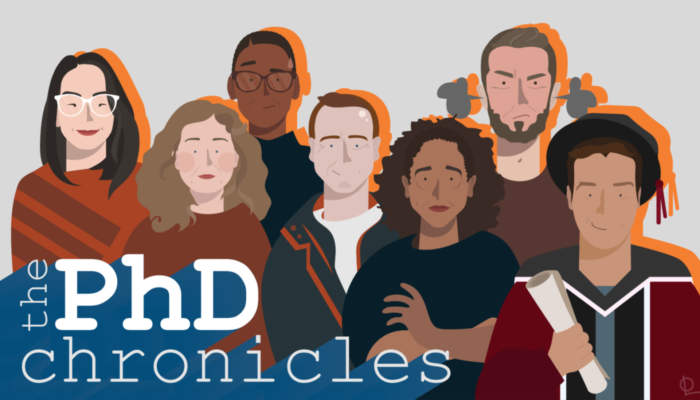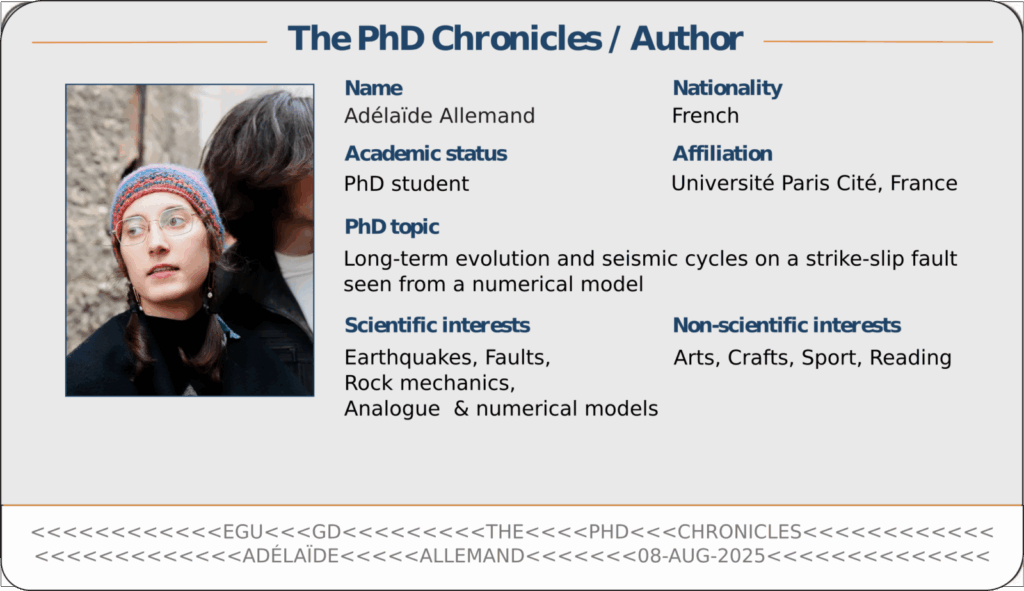
Self-guilt is a common feeling among PhD students. It often leads us to devalue ourselves more harshly than is fair and to form unrealistic expectations. It is important to understand how it shows up in our daily work, what fuels it, and how we can resist it — because over time, it can quietly undermine both our well-being and our work. The ideas below are the results of group discussions that have been held among students in Paris in September, 2024.
What do we mean by self-guilt?
Self-guilt (or sense of guilt) is a concept studied in social sciences to better understand human behaviour and relationships, and it is also a phenomenon observed and documented in the medical field. It is defined as a feeling that arises from the self-discipline we impose in an attempt to reflect critically on our own conduct. Although unpleasant, it is not inherently negative; on the contrary, it draws on our capacity for self-awareness, our recognition of mistakes, and our intention to improve.
However, self-guilt can also emerge from social norms, pressures and expectations that we have internalized — sometimes through a distorted or idealised perception of our environment, in this case, the academic environment.
For PhD students, the problem lies in the fact that self-guilt can become emotionally draining or even paralyzing, jeopardizing both our well-being and our ability to work effectively. It can also seriously undermine our self-esteem and lead to self-isolation — even though many of us are experiencing similar thoughts.
How does it manifest in our PhD life?
Among PhD students, the sense of guilt often surfaces through the persistent sensation of not doing enough. This can take the form of feeling unproductive during work hours, or believing we haven’t accomplished sufficient work at the end of the day — or the week. We often condense these beliefs in the terse statement “I have done nothing”, forgetting or overlooking the non-visible efforts we have put into our work. Eventually, this leads to compensation through self-imposed behaviours, such as:
- Reading professional emails on public transport (despite poor conditions for focus).
- Staying up late or working on weekends to read scientific articles (instead of sleeping).
- Going to the lab on weekends or staying longer in the evenings (or simply promising ourselves that we will, knowing deep down we will not, building up our mental load).
- Engaging in presenteeism—showing up just to feel like we’re working, sitting at our desk for a number of hours that seems acceptable, even when we are unfocused or unproductive.
The feeling of guilt can also take a more passive form: we deny ourselves rest, social time, or other essential activities (like sleep or healthcare), because we are convinced we should be working instead.
Another major source of self-guilt is comparison. We idealize others — fellow PhD candidates or permanent researchers — as models of efficiency and brilliance. We imagine they maintain serious working schedules, never procrastinate, never lose focus, and always deliver outstanding work. We assume that they make full use of 100% of their allocated time and do not accumulate backlog as we think we do. We also begin to internalize the idea that our thesis should be unique, perfect, and the result of total devotion. In this scenario, self-devaluation fuels self-guilt.
Where does this come from?
Because self-guilt often stems from internalized behavioural norms, one of its primary sources is the implicit (and explicit) expectations of our working environment. Even seemingly minor comments can leave a mark: remarks about taking all one’s vacation days, or leaving the office “too early,” can provoke the feeling of guilt.
Supervisors who refer to past PhD students as “brilliant,” or who admire researchers for their “passion,” may unintentionally reinforce the idea that a successful PhD is a vocation — something that requires sacrifice. This narrative feeds into the belief that the thesis must be exceptional, even if that means avoiding topics we are genuinely interested in simply because they’ve been previously explored.
Underlying this rhetoric is often an unspoken careerist expectation, disguised as a celebration of “passion.” In addition, it sustains a harmful illusion: that it is possible to do intensive intellectual work for more than 35 hours a week while remaining fully productive. This is, quite clearly, unrealistic.
How can we resist this feeling?
The first step to counteracting self-guilt is simple but powerful: talk about it. Breaking the silence around this experience can help us recognize how widespread it really is among PhD students. It is also a way to identify the moments when our actions are driven by internalized pressure rather than genuine purpose — and give us a chance to step out of that cycle.
To resist the idealization of the thesis, it helps to remember: this is a job. Although this job is valuable to us, if we were truly free to choose how to spend our time, we likely would not invest this much of it in a single academic activity. We can remind ourselves that we have been given a defined period to complete our PhD, and that we must do what we can within those boundaries. We can also accept that our thesis doesn’t need to be perfect — only complete.
In practical terms, we can set realistic daily goals and stop working once they’re completed, instead of defaulting to long hours or performative presence. This doesn’t mean giving up; it means working with intention rather than obligation.
Ultimately, when we find ourselves stuck, drained or unable to work efficiently, it might be a clever idea to get out of the office. Instead, we might reclaim the time we have, as PhD students, to do what makes us feel good — something that brings us joy, meaning, or energy, or simply something that makes sense. And we might find a sense of pride rather than of guilt.




